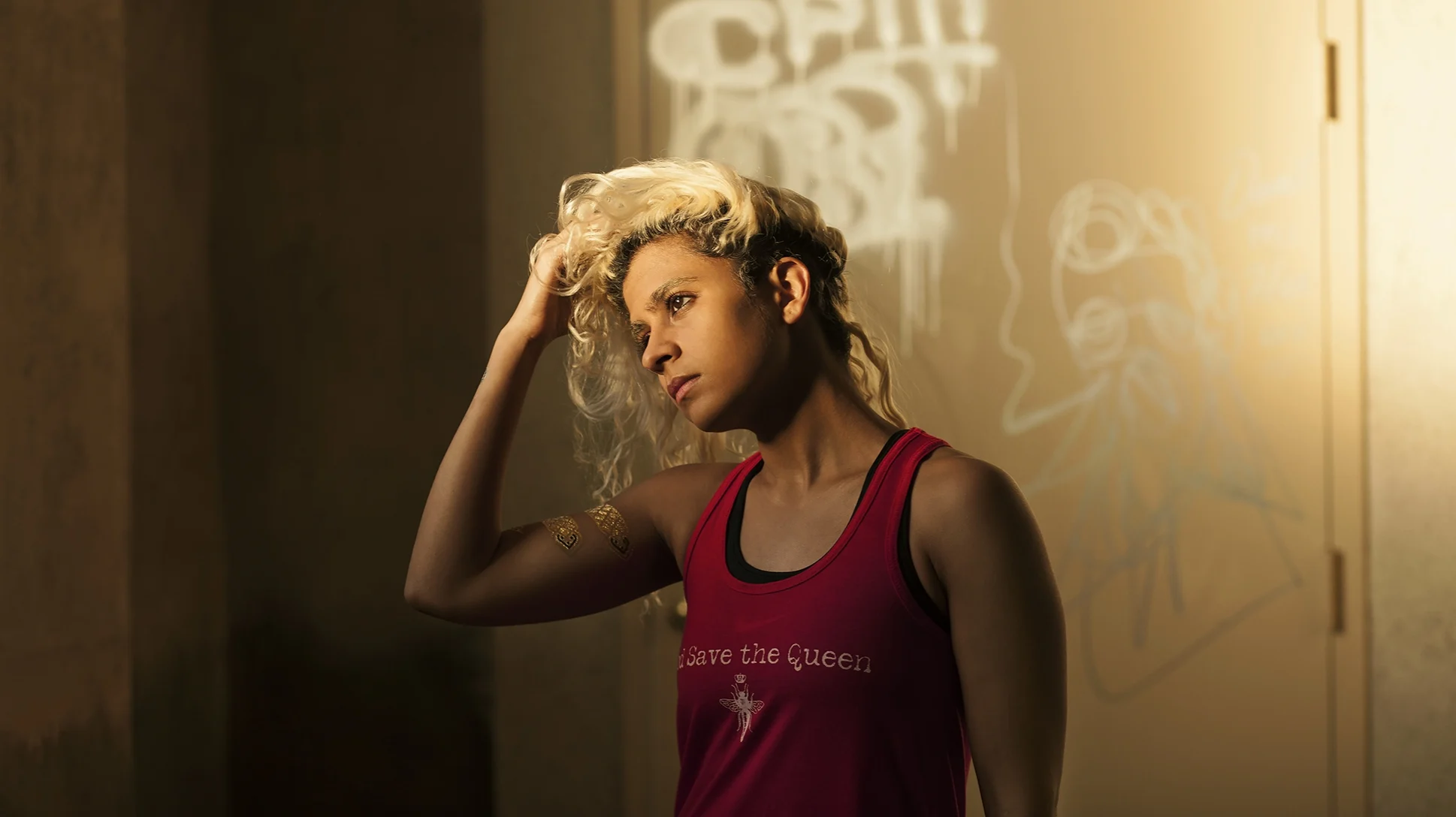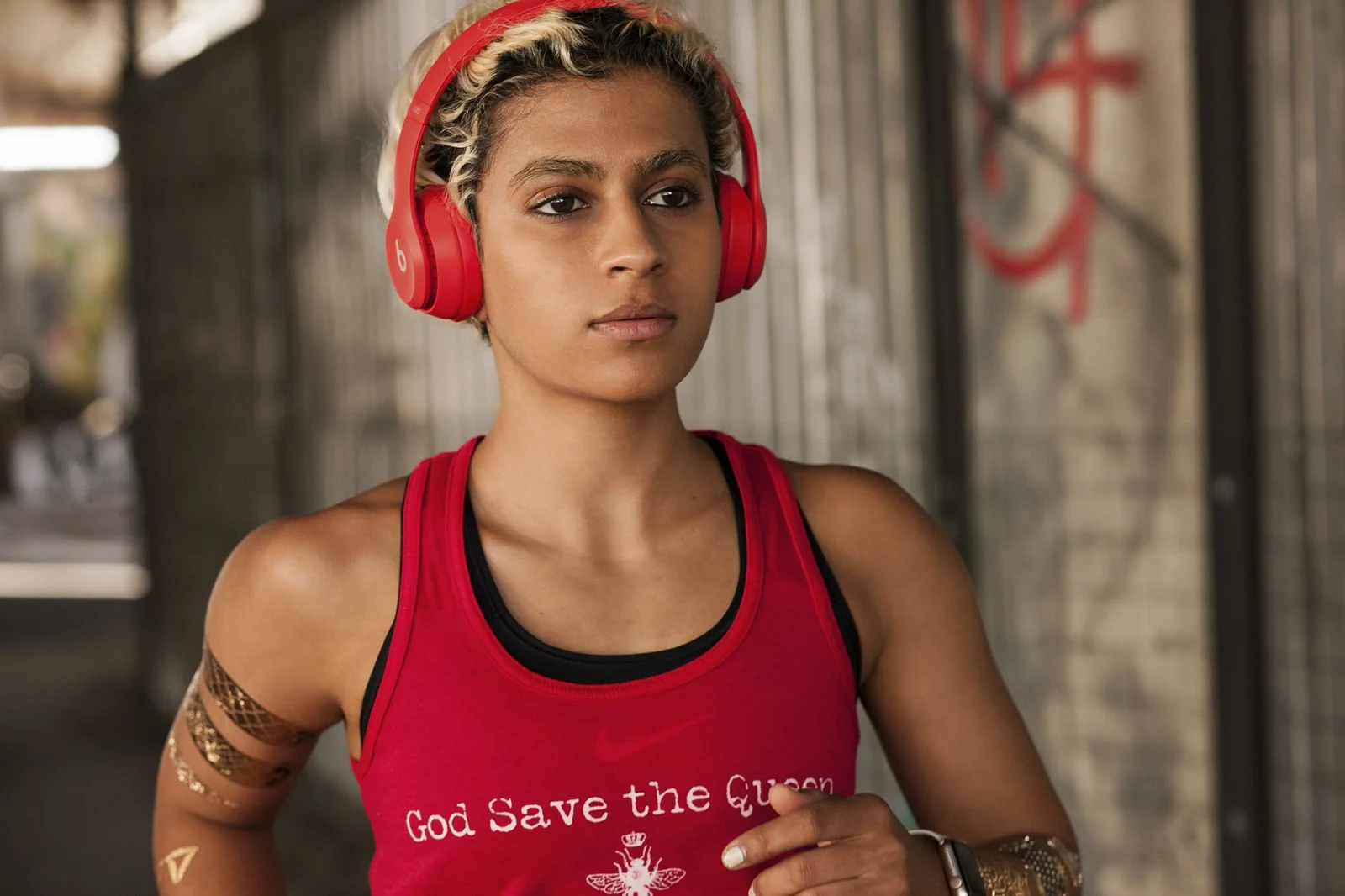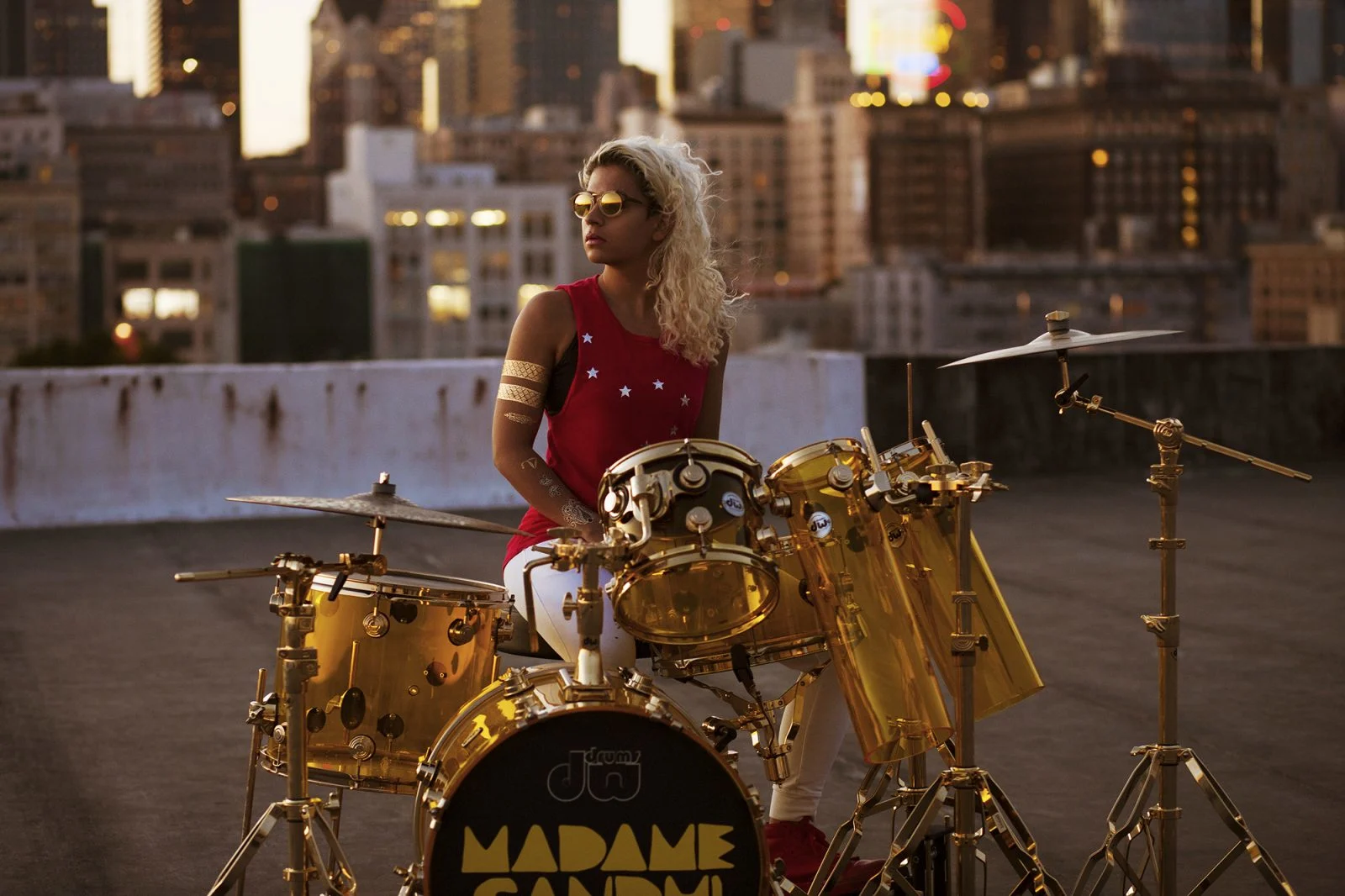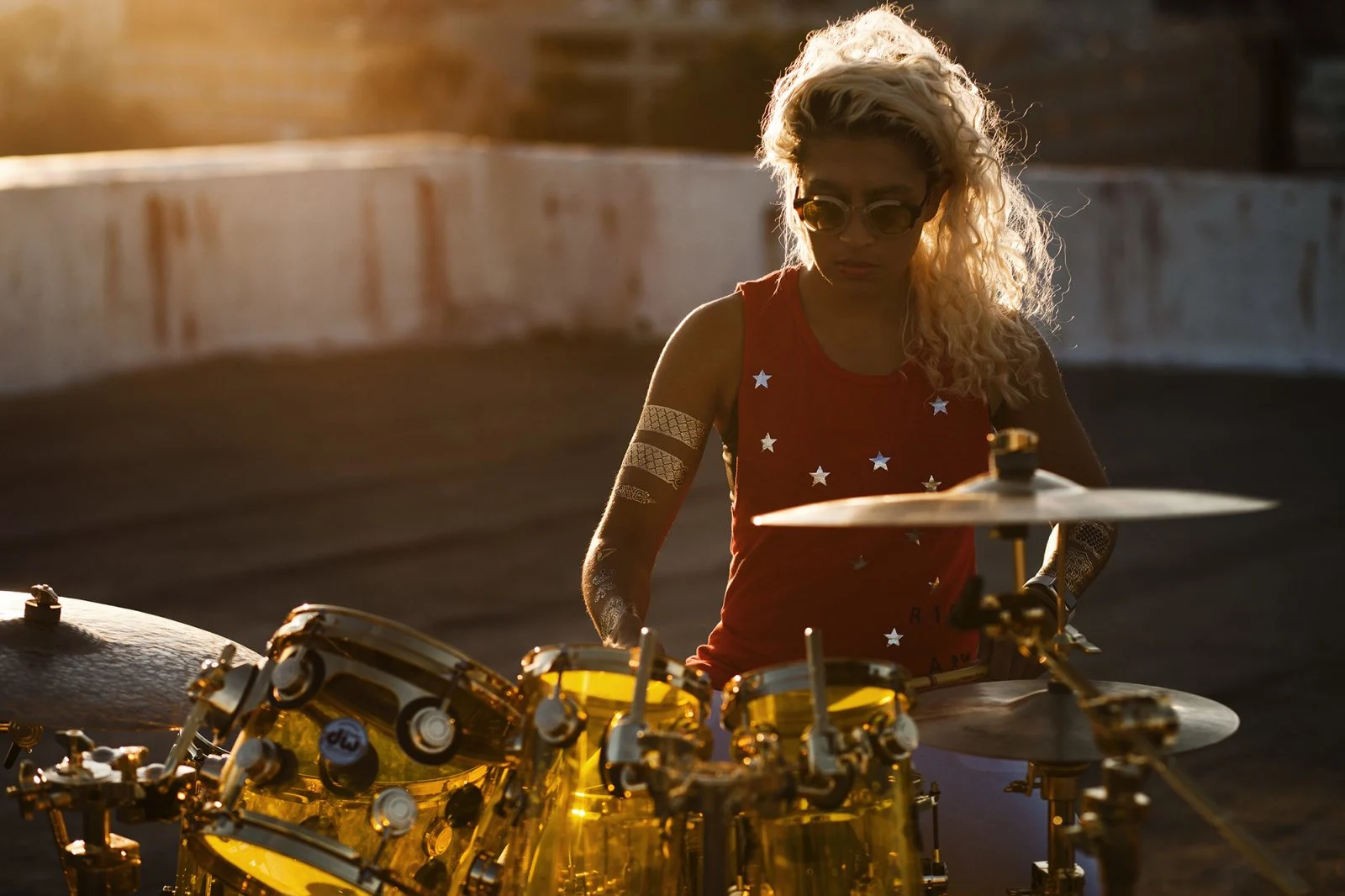

“I run to hear myself think,” says musician, artist and activist Madame Gandhi at the start of our specially-commissioned film to mark International Women’s Day. You can understand why she needs that time and space – she has emerged as one of the most interesting voices discussing, debating and dissecting modern gender politics.
“I have always been passionate about music, and I have always been passionate about feminism,” she explains. “Even as a little girl, I knew the marketing sent towards women wasn’t fair. I knew that it was always more desirable to be the boy – you can be the hero, you can be strong, you can win.
“But the girls I saw were the princess who needed to be saved. She rarely had her own agency which was so unfair. Or it was all about how beautiful she was, which I also felt was unfair because we have so much more to offer. Of course we want to look and feel beautiful – that’s a normal part of the human biological experience – but it’s oppressive when that’s all we’re valued for.”
In Hollywood and in the music industry, we see only two dimensional portrayals of women.
She doesn’t believe that art and activism necessarily go hand in hand, but she does believe, especially in these turbulent times, that, “all creatives have the responsibility to make the most honest and pure art possible, and let the world decide what to do with it.”
This obsession with authenticity has led to one of Madame Gandhi’s core principles – 3D femininity.
“In Hollywood and in the music industry, we see only two dimensional portrayals of women. We see them as the hot girlfriend, or the mother, but we don’t see them as the dynamic personalities that we know they are.
“That’s problematic, and as an artist, I see it as my responsibility to exhibit and celebrate all the different emotions and personalities we possess.”

So on her new release Voices she explains, the music ranges from “vulnerable love songs” like Moon in the Sky and Gandhi Blues, to Her and The Future is Female. “They are the anthems,” she says. “They start off gentle and peaceful and then they get angry and they are powerful political songs.”
And of course the importance of Madame Gandhi’s messages has been heightened since the US election results last year.
“I was stunned,” she admits. “I kept waiting for some other announcement to come in and say it was a mistake. It sent a message that sexism and misogyny are not big enough deterrents to stop someone getting into the White House.
“I do think that’s where there is work to be done,” she continues. “To live in a world where sexism is not tolerated, where the men in our lives step up and say, ‘No, I am not going to tolerate this, because when the women in my life are mistreated, I am mistreated’.”

But paradoxically, Madame Gandhi believes that recent events may help rather than hinder the feminist fight.
“Now that all this subtle sexism we as women experience almost daily is put in a more public place, it makes it easier to target and fight it. That’s what we are seeing now more than ever.” She cites the Women’s Marches that took place around the world the day after the inauguration as the perfect example of this new spirit, a new determination.
“The march was so extraordinary – it was very inclusive and very peaceful,” she says. “It gave me hope that there are millions of us who believe that when we see women differently, we see the world differently.”
That’s why she thinks International Women’s Day is more relevant than ever, as a dedicated, international space to recognize, celebrate and reconsider how we see women. The goal, she believes, is to move beyond gender politics, and to rebuild a society on different foundations.

“Feminism threatens a system that works for some and not for others,” she says. “And so those who have the most to lose are the most threatened. Gloria Steinem always talks about getting rid of this notion of hierarchy. What if we said we are linked and not ranked? What if we were evaluated by how good we are and by our strength of character, rather than according to an oppressive societal hierarchy?
“Once you move into that sort of system, no one would be threatened by feminism, because everyone would agree that we don’t have to live in a system which is a zero sum game, that for one person to win someone else has to lose.”
And so the message of her International Women’s Day message, created with filmmaker Deirdre O’Callaghan, is one of hope, of optimism. She was drawn to working with Deirdre because she embodied many of the traits that Madame Gandhi most wants to elevate and celebrate.

“I always tend to follow strong female leaders,” she explains, “that when someone tells you to do something there is a trust built in, because you know what they are asking is for your own good.
“Deirdre has such a fierce style of leadership because she has a vision and the film has turned out really well.
“You don’t have to be female to believe the future is female. I really do think we need to give women the space to lead. We need to stop telling women how to think and how to be. And by taking a step back and passing the mic over to the women in our lives, who knows what sort of extraordinary art, ideas, and creative thinking might come out to make the world a better place?”

